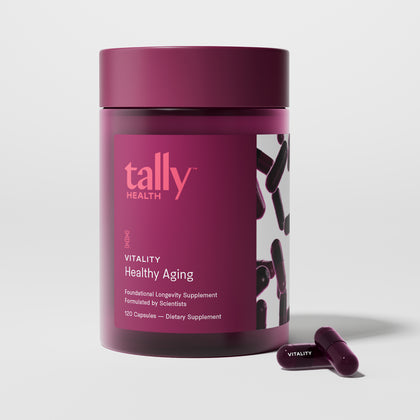

When it comes to healthy snacking, few foods spark as much debate as almonds. Some people worry that eating almonds leads to weight gain or kidney stones, while others point to their numerous health benefits—like supporting heart health, improving blood sugar control, and delivering a powerhouse of essential nutrients. So, are almonds bad for you, or are they one of the best fiber-rich foods you can add to your diet? Let’s take a closer look at the research.
Almonds Are Nutrient-Dense and Heart-Healthy

Almonds are one of the most nutrient-dense nuts available. Just a small handful of raw almonds provides:
Healthy fats: Rich in monounsaturated and polyunsaturated fats, almonds are linked to a reduced risk of cardiovascular disease. Unlike foods high in saturated fat, almonds can help lower LDL cholesterol levels while maintaining HDL, the “good” cholesterol.
Vitamin E: A powerful antioxidant that supports skin, brain, and overall cellular health.
Dietary fiber: Almonds are a fiber-rich food, which supports gut health, helps with satiety, and aids in healthy fiber intake.
B vitamins and other nutrients: Almonds provide magnesium, potassium, and other micronutrients that contribute to overall health.
Protein: One serving of almonds (1 ounce or 28 grams) contains 6 grams of protein, meaning that adding almonds to oatmeal, healthy cereal, yogurt, or another dish can help optimize daily protein intake.
Peer-reviewed studies show that eating nuts like almonds may reduce the risk of heart attacks, improve blood pressure, and support metabolic syndrome management. Evidence suggests that almonds are one of the most heart-healthy snacks you can choose.
Almond Butter, Almond Milk, and Almond Flour: Healthy Alternatives

Almonds aren’t just eaten whole. They also appear in many popular foods:
Almond butter – A creamy nut butter alternative to peanut butter. Look for unsweetened, unsalted versions to avoid added sugar and salt.
Almond milk – A dairy alternative that’s lower in calories than cow’s milk. Just be mindful of added flavors or sweeteners in flavored almonds or almond beverages.
Almond flour – A gluten-free substitute in baking that maintains many of the health benefits of almonds while being naturally grain-free.
These products allow you to enjoy the satiating properties of almonds in different forms, adding variety to a healthy diet.
Are There Downsides to Eating Too Many Almonds?

Like most nuts, almonds are high in fat content (though primarily unsaturated fats) and calories. Eating too many almonds may contribute to weight gain if consumed in excess, since almonds are high in calories. However, research also shows that their fiber and protein content helps regulate body weight by promoting fullness.
Some people may need to avoid almonds or limit them due to:
Kidney stones: Almonds are high in oxalates, which may contribute to stone formation in those predisposed.
Digestive discomfort: Large amounts of almonds can cause bloating in some individuals.
The key takeaway? Enjoy almonds in moderation. A small handful of almonds (about 1 ounce, or 23 almonds) is considered an ideal portion for most people.
Almonds vs. Other Nuts

While almonds are one of the most widely studied nuts, other nuts also provide important health benefits:
Walnuts: Rich source of the omega-3 fatty acid alpha-linolenic acid.
Macadamia nuts: High in monounsaturated fat, supportive of heart health.
Unsalted nuts: Best for those monitoring blood pressure or sodium intake.
Most nuts share similar satiating properties, making them excellent healthy snacks that support weight loss or maintenance while lowering the risk of heart disease.
The Verdict: Are Almonds Bad for You?
No—almonds aren’t bad for you. In fact, almonds are healthy snacks that can fit seamlessly into a heart-healthy, nutrient-rich diet. Research consistently shows that eating almonds supports heart health, improves blood sugar, lowers LDL cholesterol, and reduces the risk of cardiovascular disease.
When paired with other foods like fruits, vegetables, and fiber-rich foods, almonds can help maintain overall health and provide long-lasting energy.
If you’re looking for a simple upgrade to your daily routine, consider combining a handful of almonds with Tally Health’s Vitality supplement, which provides nutrients that complement almonds’ natural antioxidant properties and support metabolic health.
Final Thoughts on Healthy Snacking

Almonds, whether eaten as roasted almonds, mixed into a healthy trail mix, or enjoyed as simply almonds, offer numerous health benefits backed by peer-reviewed studies. They’re not only delicious but also a rich source of monounsaturated fat, vitamin E, and dietary fiber—all key to maintaining heart healthy function and supporting overall health.
Incorporating almonds and other nuts into a healthy diet is an easy way to promote a reduced risk of chronic disease, support a healthy body weight, and nourish your body with the other nutrients it needs.
For an added boost to your healthy snacking routine, pair nutrient-dense foods like almonds with Vitality by Tally Health, designed to support energy, cellular health, and long-term well-being.
Are almonds bad for you?
No—almonds aren’t bad for you. In fact, almonds are healthy snacks that support heart health, improve blood sugar, lower LDL cholesterol, and reduce the risk of cardiovascular disease.
What nutrients are in almonds?
Almonds are nutrient-dense, providing healthy fats, vitamin E, dietary fiber, B vitamins, magnesium, potassium, and 6 grams of protein per ounce.
Can eating too many almonds cause problems?
Yes. Eating too many almonds may contribute to weight gain because of their calorie content, and in some people, almonds may increase the risk of kidney stones or cause digestive discomfort.
Recommended Supplements
References
Kamil and Chen. Health benefits of almonds beyond cholesterol reduction. J Agric Food Chem 2012; https://doi.org/10.1021/jf2044795
Singar et al. The Effects of Almond Consumption on Cardiovascular Health and Gut Microbiome: A Comprehensive Review. Nutrients 2024; https://doi.org/10.3390/nu16121964
Dreher, ML. A Comprehensive Review of Almond Clinical Trials on Weight Measures, Metabolic Health Biomarkers and Outcomes, and the Gut Microbiota. Nutrients 2021; https://doi.org/10.3390/nu13061968
Fatahi et al. The Effects of Almond Consumption on Inflammatory Biomarkers in Adults: A Systematic Review and Meta-Analysis of Randomized Clinical Trials. Adv Nutr 2022; https://doi.org/10.1093/advances/nmab158
Eslampour et al. The effect of almond intake on blood pressure: A systematic review and meta-analysis of randomized controlled trials. Complement Ther Med 2020; https://doi.org/10.1016/j.ctim.2020.102399
Lee-Bravatti et al. Almond Consumption and Risk Factors for Cardiovascular Disease: A Systematic Review and Meta-analysis of Randomized Controlled Trials. Adv Nutr 2019; https://doi.org/10.1093/advances/nmz043
Bao et al. Association of nut consumption with total and cause-specific mortality. N Engl J Med 2013; https://doi.org/10.1056/nejmoa1307352











